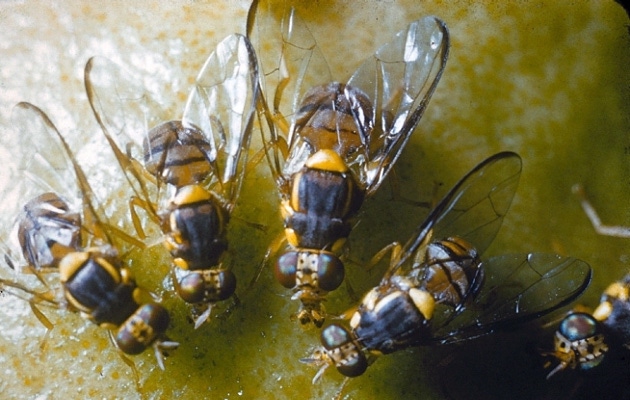September 15, 2015

An agricultural emergency has been declared in Florida due to the Oriental Fruit Fly infestation in Miami-Dade County. It is considered one of the most serious of the world’s fruit fly pests due to its potential economic harm.
Since the first detection of the Oriental Fruit Fly Aug. 26 in Miami-Dade County, 158 flies have been detected, specifically in the Redland area (156), Kendall (1) and Miami (1).
The fly attacks more than 430 different fruits, vegetables and nuts, including: avocado, mango, mamey, loquat, lychee, longon, dragon fruit, guava, papaya, sapodilla, banana and annona. The fruit flies lay their eggs in host fruits and vegetables.
Miami-Dade County is the state’s leader in the production of tropical vegetables, tropical fruit and ornamental nurseries, and overall agricultural production generates more than $1.6 billion in annual economic impact and supports more than 11,000 jobs.
The Florida Department of Agriculture and Consumer Services and the U.S. Department of Agriculture have been aggressively working to eradicate this pest, including:
Assisting industry with the requirements of their compliance agreements;
Quarantining an 85-square-mile area around the core areas where detections have been made in order to prevent the spread of the fly;
Treating a 1.5-square-mile area around each fly detection. This treatment, which is conducted by the department, consists of attracting male flies to bait which consists of an attractant, an insecticide, and a thickening agent. The flies are killed when they feed on the bait. The bait mixture is applied weekly to upper portions of telephone and utility poles. The application will continue for at least two life cycles of the fly after each find, which is approximately 60 days;
Removal of fruit from host trees—while leaving the trees—within 200 meters of a larval or mature female fruit fly find; and
Ground spraying with GF120, a pesticide certified for use in organic farming. Spinosad (GF-120 NF NaturalyteTM Fruit Fly Bait) is an insecticide that is extracted from the naturally occurring soil microbe, Saccharopolyspora spinosa. Spinosad is in common use by organic growers and was granted a “Green Chemistry” award by the U.S. Environmental Protection Agency, which classifies it as “reduced risk” because of its good environmental profile.
About the Author(s)
You May Also Like






